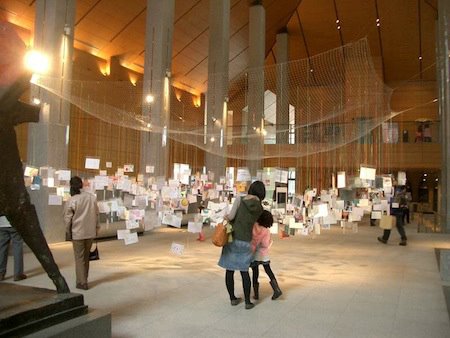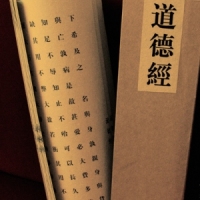#NobelPrizeSummit Day 1: My attendance notes from Cecilia.Yu #transparency #sustainability #sdg #Climatechange #corporatesocialresponsibility

Nobel Prize Summit : My transparent attendance notes By Cecilia W Yu
The following is a transparent access to the notes I took during the NPS. On a few occasions we had direct online access to some of the keynote speakers. I attended a small Workshop with Nobel Laureate Joseph Stieglitz and raised my concerns during the Q&A. Sharing with UNFCCC COP26 Africa Pavilion Climate Negotiators for Global #Sustainability Advocacies
Listen to “Day 1 of 2021 Nobel Prize Summit: My Transparent Notes by Cecilia W Yu ” by Sustain-Able Yu 余 : CeciliaYu.com. Thank you Anchor.fm for providing the Ai Voice reader to me!
https://anchor.fm/ceciliawyu/episodes/Day-1-of-2021-Nobel-Prize-Summit-My-Transparent-Notes-by-Cecilia-W-Yu-e16ne5f
Converted fr Blog: www.ceciliayu.com/2021/09/01/nobelprizesummit-day-1-my-attendance-notes-by-cecilia-yu-transparency-sustainability-sdg-climatechange-corporatesocialresponsibility
Spotify.com link:https://open.spotify.com/episode/2ClWbOnMpqzLw4nPgUZZxn
Pre-reading : Read the journal article: Our Future in the Anthropocene Biosphere
Citations: Folke, C., Polasky, S., Rockström, J. et al. Our future in the Anthropocene biosphere. Ambio 50, 834–869 (2021). https://link.springer.com/article/10.1007/s13280-021-01544-8
The first Nobel Prize Summit, Our Planet, Our Future, is an online convening to discuss the state of the planet at acritical juncture for humanity. The Summit brings together Nobel Laureates and other leading scientists with thought leaders, policy makers, business leaders, and young people to explore solutions to immediate challenges facing our global civilization: mitigate and adapt to the threat posed by climate change and biodiversity loss, reduce inequalities and lift people out of poverty, and made even more urgent due to the economic hardships posed by the pandemic, and harness science, technology, and innovation to enable societal transformations while anticipating and reducing potential harms. The Nobel Prize Summit includes both workshops, publications, and online programmes in forms of webinars, pre-events, and the Nobel Prize Summit days on April 26–28, 2021. The Summit is convened by the Nobel Foundation, in partnership with the U.S. National Academy of Sciences, the Potsdam Institute for Climate Impact Research, and the Stockholm Resilience Centre, Stockholm University/Beijer Institute, Royal Swedish Academy of Sciences. This article is a condensed and updated version of the White Paper ‘‘Our future in the Anthropocene biosphere: global sustainability and resilient societies’’ (Folke et al.2020) written for the Nobel Prize Summit. The Author(s) 2021 http://www.kva.se/en123Ambio 2021, 50:834–869835
Academic Science Sessions 26-28th April 2021: https://www.nobelprize.org/our-planet-our-future-academic-science-sessions/

Call for Action: 29th April 2021 : https://www.nationalacademies.org/news/2021/04/nobel-prize-laureates-and-other-experts-issue-urgent-call-for-action-after-our-planet-our-future-summit
These sessions were designed as a scientific discussion on global sustainability challenges in the context of a global pandemic. The sessions explored the leadership role of science as we enter a critical ‘decade of action’.
Main audience: Nobel Prize laureates and invited experts
Watch Academic Science Session 1
Watch Academic Science Session 2
Nobel Prize Summit Reading List Collection contains all the papers and books cited by various Laureate and speakers during the summit: https://www.nap.edu/collection/120/our-planet-our-future-nobel-prize-summit-reading-list
1st Session: Opening the Programme:
The committee in Sweden suggested that efforts of the USA to mitigate Climate Change is insufficient, based on what they read of the briefings from the Biden administration at the White House. The issue of “enforceability” of laws against emitters came up. Nobel Peace Laureate and former White House Insider Al Gore explained that Artificial Intelligence enabled technology have the potential to hold emitters accountable. However, many at the sessions were left, like me, with the question: How will the law against chronic illegal carbon emitters be enforced on a transnational level? Under what jurisdiction would those living on the Anthropocene be able to hold entire Member states such as USA or China accountable for their emissions and destruction of our shared biospheres?
The enforceability issue was acknowledged but the questions remained unaddressed by any UN high level commitments with genuine legal enforcement and censure mechanisms. The jurisprudence issue remains in the hands of individual members states and their objective or subjective legal system, some of which, like China, have no inherent separation of power as it is not a democracy!
The positive figures cited by the USA delegates were:
- 37 trillion US dollars will be committed to enable USA to become NetZero by 2050
- US will hold to the Paris Agreement under Biden and reduce Greenhouse emissions by 7.4%
- The Coal Miners Union of the USA just endorsed Biden’s plan to phase out coal and the Biden administration has committed to green stimulus measures of investments that will generate (forecasted) x3 times more in return for the sector, as well as forecasting on a domestic level, the fastest job growth area for Green Clean Renewable energies sources.
- That on a global scale, the lessons learnt from the Covid19 Pandemic is the willingness to listen to scientists, given the obvious Pandemic related Income Inequality in 2020-2021
The following negative impact was mentioned:
- The Pandemic created a flow of 1 billion Climate Refugees (Actual and forecasted sums), which resulted in a rise in xenophobia and the rise of populist Authoritarianism globally.
- Al Gore specifically mentioned the need to ignore and reject those with lobby fundings to block Climate Change strategies on a domestic and global geo-political level. He reiterated that the scientific data is strong on the point by stating, “If we stopped adding to CO2, temperature will reduce in 5 years!
My attendee notes: The forecasted figure from Al Gore did not cite any research but the technical notes were referenced in Folke et al, pre-reading. So, it is taken, on this occasion, as in other sessions in the program, think-tanks, and workshops that some data are presented as media soundbites, to Highlight and flagged the body of research presented at the scientific sessions in Stockholm. Al Gore was presenting the NYC, USA session which was much more lay-person friendly and included icebreakers such as music performances, theatrical performances of Oedipus by Hollywood Actor Bill Murray, Barristers, Star Wars series Voice Actors, mix ologies and other creative ways of presenting the message, to reach a wider level of audience at the Grassroot. Conversely in the Academic session, the only creative, non-verbal multi-media communication tools was the presence of Professional Artists, to provide a visual record of the topic, meetings to synergise the intellectual dynamics with visual aesthetics that may capture the energies as well as the dynamics within the scientific panels. Since I have participated as a professional artist level at such High-end academic conferences and have attended many in sessions where artists are placed in the room, as part of the visual non-verbal discourse at UN level, I did not find the presence of artistic contribution at a Nobel Science panel, unusual. I’ve encountered surprise and scepticism in some faculties while other Sustainability research groups embraced the concept but have not experienced it at conference yet. I understand that in some areas of Academia (this trend has not been introduced at all) so I thought it was important to add this explanation to my published notes.
For the results of the Nobel Prize Summit Science panels’ collaborations with various world artists, please follow the link to above weblink to journal article “Our future in the biosphere”.

2nd Session: Biodiversity and stewardship of the Oceans
In the area of Biodiversity, Dr. Sandra Diaz Professor of Ecosystems (Universidad Nacional de Cordoba Argentina) and Dr. Thomas Lovejoy (Professor of Ecosystems, George Mason Uni Biodiversity) and the UN Foundation, began the discussions with the analysis of “Think Global, act local” concept is Outdated!
They stated: The present model and way of conducting business, is causing massive biodiversity loss!
Thomas (Dr. Lovejoy) talked about the decline in Amazonian rainfalls and the reduction of biodiversity in the Amazon. Sandra (Dr. Diaz) presented a horrifying infographic of the human air traffic map before the Covid19 Pandemic.
Sandra reiterated the Local v. Global paradigm. She talked about the way air traffic and CO2 emissions shatter the concept of “Think Global, act Local’’ because the “tele-couplings” of factors, like the butterfly effects in chaos theories, meant that in reality: Nobody is truly local. The impact on remote ecosystem of air traffic of Europe and North America, had direct impact on the rest of the world. The idea of conservation by simply “looking after our own backyard seems pleasant but it is no longer effective”.
My note: There are numerous researches on OECD and UN level that indicated, the “tending to one’s own backyard” was NEVER effective to begin with!
The panel presented the following rational approach to substantiate why the paradigm is, in the context of a 21st century lifestyle, ineffectual:
We must keep in mind the following factors that go beyond localised “awareness building” and require practical applications:
1) majority of people enjoy connection
2) living fabric of earth can be kept alive and is physically visible & tangible
3) Mitigation and technology associated with the process, are present and affordable
So, the panel proposed Trans-national Urgent Actions where practical measures are implemented locally yet the direct physical impact of a Sustainable policy shift, can be felt globally. The panel also expressed the urgent need for fundamental changes on a Socio-economic & Institutional level worldwide. The panel continued to emphasize that the measure of whether a Global Sustainability solution, must and should be directed at the Level of Individual Internal narratives about what constitute a good life for oneself and all life forms on this planet!
End of Day 1 Panel Sessions.
Day 1 Think-tanks and Workshops:
1st Session:
My notes: I participated in “Sustainability and Human Rights” dialogue; several Nobel laureates led the discussions. Initially there was some technical problem as many North American participants were unable to log in.
It is my observation that the USA contribution to the panels, seemed to emphasize “optimism” almost at the expense of the “critical nature” of our climate crisis, a message reverberating throughout the Science panels! Furthermore, I question why certain US political stakeholders occupied a seat on the Panel. Afterall, it is the Nobel Prize Summit; yet I note with academic interest, individuals such as Dr. Fauci did not possess a Nobel Prize and his organisation was never nominated, so I could not help but wonder, “What is he doing here on the science panel of laureates discussing Climate change?”. In any case, the Stockholm host resolved or at least provided partial solutions for access to the session.
2019 Nobel Laureate in Chemistry Stanley Whittingham discussed technologies, ironically while the technology was failing, and talked about his generation’s youths were so vocal with flower power!
My note: I am not sure those indigenous tribal youths arrested as domestic terrorists for protesting as Water protectors in Dakota, tribes in the Amazon or those at the foothills of Kilimanjaro in Africa, Extinction Rebellion protests in the UK that got “Kettled” for hours then tear-gassed and beaten within an inch of their lives by police brutality, needed only to “wear some colourful hippy flower shirts making the V sign” and the powers be damned, they would be , ever so effective! (sic.) I know this was not the intended meaning, but most of the audience attending had never heard of Woodstock, so perhaps Hong Kong Protest, London Extinction Rebellion or US Dakota Water protectors, would have resonated more!
Anyway, inter-generational stereotyping and jokes aside, on a practical note, 2004 Nobel Laureate in Physics, David Gross was much more scathing (and not “optimistic”) towards US policies!
Together the panel discussed the limits of batteries, in so far as, batteries alone cannot power all airplanes and mitigate the CO2 emissions of global flights schedules, through technological adaptation. Part of the panel’s frustration is that:
There is no penalty in the USA for generating Carbon Monoxide!

The US contingents in the discussion, talked about China’s monopoly of modern batteries technologies! Members of the discussion group warned that unless the 1st world move away from Profit-only motives in the business of producing green transition technologies, like Sustainable renewable batteries, the problem of China (a non-democratic one-party authoritarian government) will own the grids of American companies using Green Technology in the future. This was a special point of concern for those in the discussion, who asserts that Access to Green technologies and Science based solutions to global Climate Crisis, is a Human Right!
At this point in the discussion, Dr Martin Chalfie mentioned the book titled “Eugenics and other Evils: An Argument against the scientifically organized state” by G.K.Chesterton and Michael.W.Perry. Dr Chalfie noted that Science innovation does not come in a “purposeful way”, from his experience it tends to be someone noticing something unusual. He supported the visions of Scientists, Artists and Writers who look at the world differently. He stressed that Humanities and Scientific Culture are not two different cultures! Art, Culture, Science improves lives and facilitate connections for Humanity!
At this point, I highlighted the concern for my lobby group with Special Consultative Status with UN ECOSOC in Africa, that the “Patent copyrights” of Vaccines and other green transition technologies and how that acts as a Barrier to solving problems in the Global South. What can be done to address this most basic of Human rights i.e. Access to life saving science?

Dr Joseph Stieglitz responded with the example of Patents sharing for the first developer of the polio vaccine. His position as a Nobel Laureate in Economics is that despite market theories, “You cannot patent the sun and information, if patents create barriers to deny access to life; that is a REAL TRAVESTY!”
At this point other questions and discussions talked about the lack of specific strategies and policies to change the landscape in a capitalist system where copyrights of Scientific Innovations for Profit-only, occurred prior to the discovery or immediately upon discovery! It was suggested more Actions must be taken to address the issue of Profit above Human Rights, in the business community!
*** I thought this was very useful and important session to influence policies directed at Global MNE businesses and the governance of Globalised activities, especially the interface between Government incentives, Legislative interventions, and Business Practices.
Thereafter, the issue of “Scaling” up workable solutions on a global level was raised.
Information on the Ocean under climate change, including mitigation is assessed in IPCC Special Report on Ocean and Cryosphere: https://www.ipcc.ch/srocc/
2nd Session
In the afternoon session, Nobel Laureate Dr. Steve Chu described Global Consumption as a failed Ponzi scheme. Dr Natalia Kanem who is the United Nations Under-Secretary-General and the Executive Director of the United Nations Population Fund (UNFPA), the United Nations sexual and reproductive health agency, joined the panel discussion. She highlighted the plights of women married young against their will, as child brides. In every country where there are economic possibilities and opportunities, women’s participation equally in society. Thus, the rights of women are also one of a socio-economic struggles worldwide, especially in the rights of living and the right to participate in commerce and control of one’s wealth. The pandemics shows the fault lines of what a poor health system can damage the economy. Also in the Pandemic, Natalia noted that systemic bias translates into systemic neglect. Equality of access to food, freedom from food poverty, is an integral part of Sustainable climate issue.

The workshop picked up on the importance of digital technology e.g., the use of Telemedicine allowed online diagnosis worldwide into remote areas like Mongolia etc.
Natalia talked about the digital divide that is now the main concern for girls of the world for several life-preserving reasons. When a girl or young woman have mobile phone access, she can search for information worldwide, access education and other employment opportunities, and even lifesaving information such as escaping Domestic violence etc. In developing countries Cell phone access leaped past landlines technologically, so individual access became more poignant and pivotal; however, it is restricted to whether a person or a community have the economic means to purchase a smart phone. Again, access to technology is a human right!
Other technologies, intricately tied with Human rights, were access to inexpensive solar panel with stored energy that can store power to purify water etc. It is possible to leap-frog with technologies. What is needed is not just energy storage in terms of battery storage life but the kind of batteries that can directly pump water from solar or wind energy is much more pivotal for the Human rights to clean water. (My note UN SDG 6)
The discussion turned towards barriers and encumbrances, as it steered towards a natural conclusion given the time limit. There was a very honest reflection about conditions and structures that present encumbrances to encourage some countries to buy diesel and other fossil fuels. This is how the MNEs make money. Global tension rises when certain encumbrances are created, indoctrinating the world by saying, “We must stick to the old options, and it is too difficult for us to figure out what is a real solution and not just “counterfeit junk”.”
My note: It is important to recognise the vested interests of the immensely powerful globalised actors who profit from denying climate change and rejects every solution presented. But I am not sure for the ordinary person in civil society, it is so easy to (as Al Gore suggested) ‘’ignore the noise” when the message is promulgated with the collaboration of Multimedia and social media for profit, without regards to how disinformation can cost human lives!

(c) NobelPrizeSummit 2021 
(c) NobelPrizeSummit 2021 
(c) ceciliayu.com 2021 
(c) ceciliayu.com 2021























To/From Cecilia Messages: